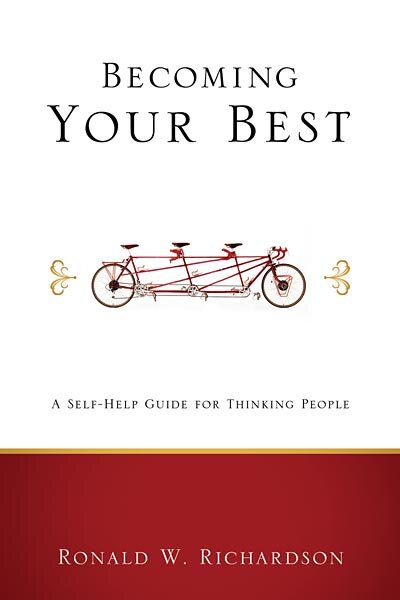Ronald Richardson, Becoming Your Best: A Self-Help Guide for Thinking People (Living Well). Augsburg Fortress Publishers, 2008.
Referenced in: Leadership and Emotional Systems, Self-Differentiation
LifeandLeadership.com Summary
Ronald Richardson is one of the best authors on applying family systems theory to church leadership. His books, Becoming a Healthier Church and Becoming A Healthier Pastor, are excellent. This volume, Becoming Your Best, is not targeted to church leaders, but to building good relationships in general, particularly committed relationships such as marriage. As with most books in this genre, the focus is on emotional maturity and the ability to manage one’s anxiety. A special contribution of this text, however, is the connection Richardson shows between emotional maturity and integrity, character, and principle. He also stresses that “being good” in this sense is the key to having good relationships. He says,
Close relationships are rarely consistently calm and easy. The test for goodness is whether people will behave well when they feel significant anxiety or uneasiness or a sense of personal threat. Will they behave well when they may be tempted to abandon principle for expediency, or will they automatically react and attack back when feeling attacked and when their love and concern for the other is severely tested? This is what I mean by being good.
Anxiety in life and relationships tempts us to compromise our professed principles as to how we want to be. A sense of safety and well-being, achieved by reducing the immediate anxiety, can become more important than living up to our values. We choose emotional or physical security over principle. (142)
To deal with this, Richardson suggests “Six tasks for becoming a good person and making good relationships”
1. Work at developing your own level of emotional maturity.
2. Learn to deal with anxiety and the sense of emotional threat that inspires it by becoming calmer and a more solid self.
3. Continue to learn to know yourself and how you actually behave in relation to others, and to be responsible for yourself.
4. Focus on your personal goals rather than focusing on others and what they may or may not be doing or what they may or may not want from you.
5. Approach important situations with more objective thinking rather than only relying on your feelings.
6. Develop the principles you want to live by and affirm them in your actions, particularly at critical points in life. (143)
This is an excellent text that in true Richardson fashion translates the principles of emotional systems theory into the real situations of life. I highly recommend it.
From the Publisher
What makes for a good relationship? Author Ronald W. Richardson says that “good people make good relationships.” Jane Austen would agree with him. Drawing on the insights of modern family systems theory, this self-help book for thinking people addresses the issues of emotional maturity, strength of character, values, and thoughtfulness in each partner and how these virtues each contribute to good relationships.
Richardson, a certified marriage and family therapist, relies on his thirty years of clinical experience, teaching, and supervision for relevant, contemporary examples as he illustrates how good people make for good relationships. In addition, selections from Jane Austen’s many novels provide an entertaining perspective on timeless truths.
About the Author
Ronald W. Richardson is former Clinical Director of the North Shore Counseling Center, pastoral counselor, author of many books on family systems theory and is currently a retired pastor living in West Vancouver, BC, Canada. He is a member of various groups including North Puget Sound Presbytery, a Diplomat for American Association of Pastoral Counselors, and Clinical Member and Approved Supervisor for American Association for Marriage and Family Therapy. He also held many workshops for his work in many different organizations.
Ronald is author of Family Ties That Bind: A Self-Help Guide to Change through Family of Origin Therapy (Self Counsel Press 1984), Birth Order and You: How Your Sex and Position in the Family Affect Your Personality and Relationships (Self Counsel Press 1990), and Creating a Healthier Church: Family Systems Theory, Leadership, and Congregational Life (Fortress Press 1996).
***For additional information on this resource, including reviews, click the bookstore links. Check the reference at page top or the links below for resource guides on related topics.***
See Other Resources on Leadership:
See Resources on Over 100 Areas of Ministry Leadership:


